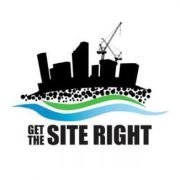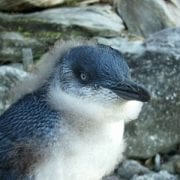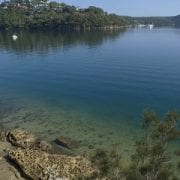Media Release – 2 May 2019
Regulating Run-off: Polluters Targeted During May Inspection Blitz
Building sites that fail to control their runoff will be in the firing line this month as the Get the Site Right campaign gets underway.
The Get the Site Right compliance and education campaign will last throughout May, with council and EPA officers targeting erosion and sediment control on building and construction sites across Sydney and the Central Coast.
The campaign aims to improve the health of local waterways and has a firm target of making Parramatta River swimmable by the year 2025.
The campaign has grown in size and industry awareness each year. It is a joint initiative between the Parramatta River Catchment Group (PRCG), the NSW Environment Protection Authority (EPA), Cooks River Alliance, Georges River Riverkeeper, Sydney Coastal Councils Group, Department of Planning & Environment, and over 20 councils.
EPA Regional Director Metropolitan Giselle Howard said Get the Site Right is focused on minimising environmental harm.
“Everybody wants a local place to swim, and the Get the Site Right campaign is part of that push to make rivers and waterways swimmable,” Ms Howard said.
“Up to four truckloads of soil from a building site can be washed away in a single storm, damaging vital aquatic ecosystems, so it is crucial that developers are putting the right control systems in place. “While Get the Site Right is a targeted compliance blitz that will include the issuing of fines, we are focused on is prevention as the cure; we want developers and builders to stop the sediment leaving their site boundaries in the first place, by putting the appropriate erosion and sediment controls in place.”
Campaigns such as Get the Site Right play an important role in raising awareness about the many ways industry and the community can help us to achieve a clean and safe river.
In the May 2018 campaign, 50 per cent of sites were compliant with the sediment run-off prevention measures, and a total of $212,412 in fines was issued from 746 site inspections.
Why is sediment runoff from constructions sites a problem? Sediment spills affect our environment and waterways in a number of ways, including:
- Destroys aquatic habitats and smothers native plants and animals that live in our waterways.
- Directly pollutes creeks, river and harbours by filling them with dirt, soil, sand and mud. This leads to poorer water quality, affecting swimming or leisure activities in and around our waterways.
- Blocks stormwater drains leading to flooding and overflows.
- Erodes creek and river banks.
- Causes health and safety risks such as slippery roads and tripping hazards.
Members of the public can report pollution incidents, including poor sediment control, to the EPA’s 24/7 Environment Line on 131 555. More information on erosion and sediment control is available at: www.ourlivingriver.com.au/getthesiteright
![]()





